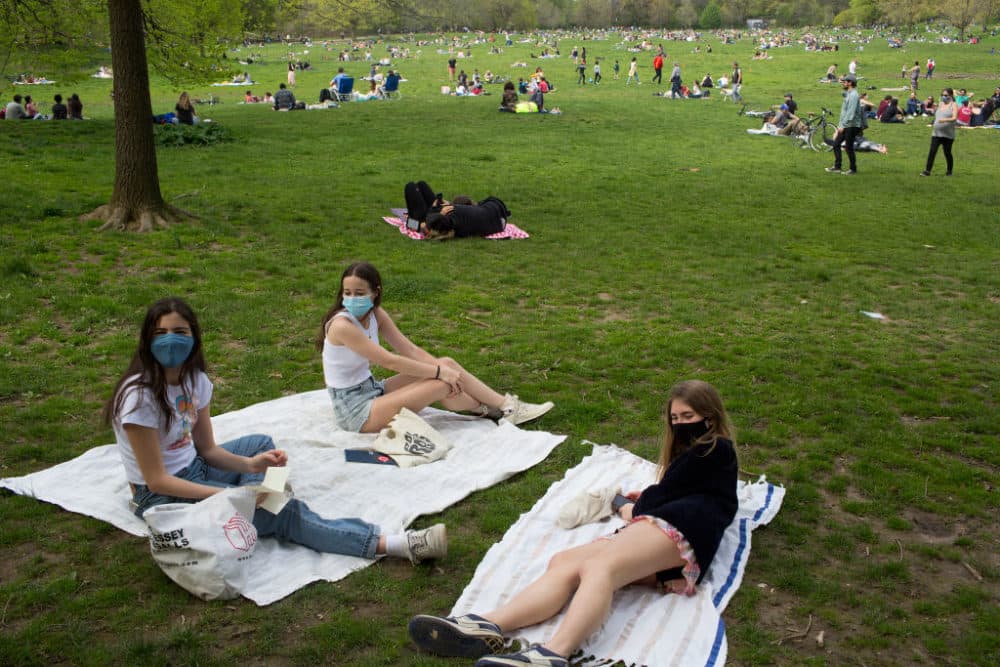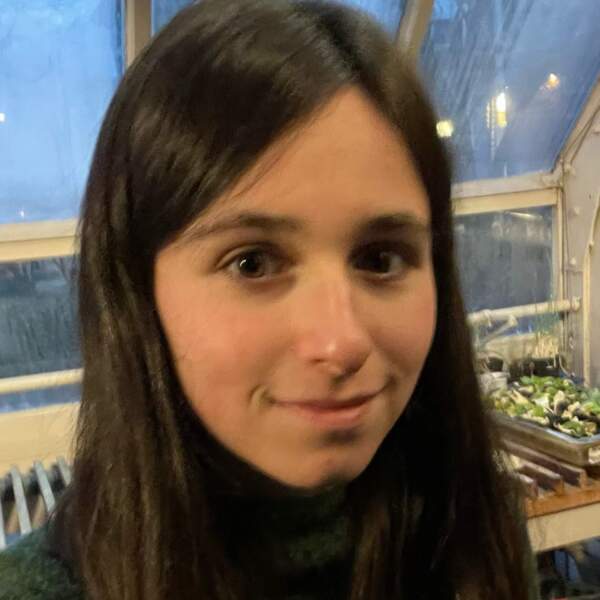Advertisement
Commentary
I’m 14. This Pandemic Year Felt Like ‘A Life Preserved In Amber’

The pandemic has upended life for many young people, exacerbating mental health issues for those already struggling and bringing up new emotions for others. This piece is part of a special WBUR series exploring how kids are faring now and what challenges lie ahead.
Being a teen in the pandemic is like having your life preserved in amber. It’s a half-life: trying to replicate human connection through wires and pixels, slogging through full days of school without the respite of grins across the classroom or the daily chaos of the lunchroom.
When school was first canceled, back in March 2020, it was only for two weeks. We were excited. A vacation! I don’t think I fully thought about the reason for the break. Our spring remote work was, to put it lightly, spotty. My parents trusted us to do school work online without much prodding or supervision, and, to be honest, I simply gave up on math.
Soon enough it was summer, and I wanted to see my friends. I was tired of hot, sweaty hikes with my dad. Backyard talking became the new summer activity. I would walk to a friend's house and we would carefully space our chairs six feet apart, take off our masks and talk. I ached to have sleepovers, go on trips and go to summer camp. But there were a few times that summer I was happy. I labeled them Normal Days.

One was in Gloucester, where we had rented an Airbnb. I had a group of friends, and we walked around the entire town one day. From beach, to ice cream parlor, to beach, to another beach, to park. I wondered afterward why it was such a great day, and then I realized: because this is what I should be doing this summer. Being out, with friends, independent from my family.
If the spring and summer were crisis-control, by the fall, we started settling into a routine. I chose to do remote school, out of COVID fears. I “podded” with a couple of friends, going to their houses some days for school, but mostly I was at home, at my computer, with my siblings just a couple rooms away and — more often than not — just one parent, since week-long writing retreats had become increasingly common for my frazzled parents who both work from home. I began to get up late when I was at home, rolling out of bed at 8:10 a.m. to brush my teeth and hop onto Zoom in my pajamas.
As casual as this sounds, the fall wasn’t some half-thrown together remote learning I could do for 20 minutes a day (like spring) without real consequences. I had to be responsible. I like to think I’ve improved with independent work, but getting used to it doesn’t mean I’m thriving. It just doesn’t feel natural.
Through the long winter, COVID cases were up, but for me it was politics that felt out of hand. I remember listening to the confirmation of the electoral votes as the footage started switching to the “protest” outside the capitol building. I think we all know what came next.
Advertisement
This was a big part of 2020 (and 2021): Balancing personal fears and insecurities with the national tension filling the internet, the news, the words of our leaders.
This was a big part of 2020 (and 2021): Balancing personal fears and insecurities with the national tension filling the internet, the news, the words of our leaders.
Many people don’t think of 7th and 8th grade as hard years to lose, because middle school is seen as so universally contemptible. But they are actually really important years. They are the last years of real childhood, before you go to high school and have to worry about getting a summer job, taking honors classes and how your grades will look on college applications. Middle school might be gross and weird and difficult in many ways, but it's also a time to be independent, without having so many responsibilities.
I wish that I didn’t lose those years, and I know there’s no way to really make them up.
But now, slowly, life is beginning to trickle in again. As I write this, I am hours away from getting my second COVID vaccine shot. We are going to California this summer, and I am going to summer camp. I went to a birthday party last week — outside — and remembered the joy of just being silly with my friends.
Maybe it’s the only thing that’s good about bad times: when you come out the other side, it is with more gratitude.
